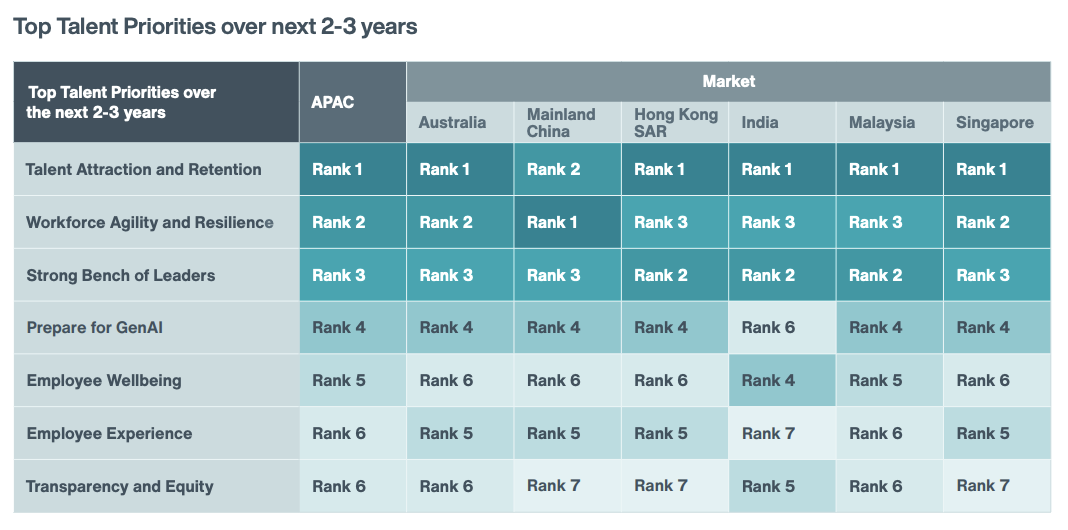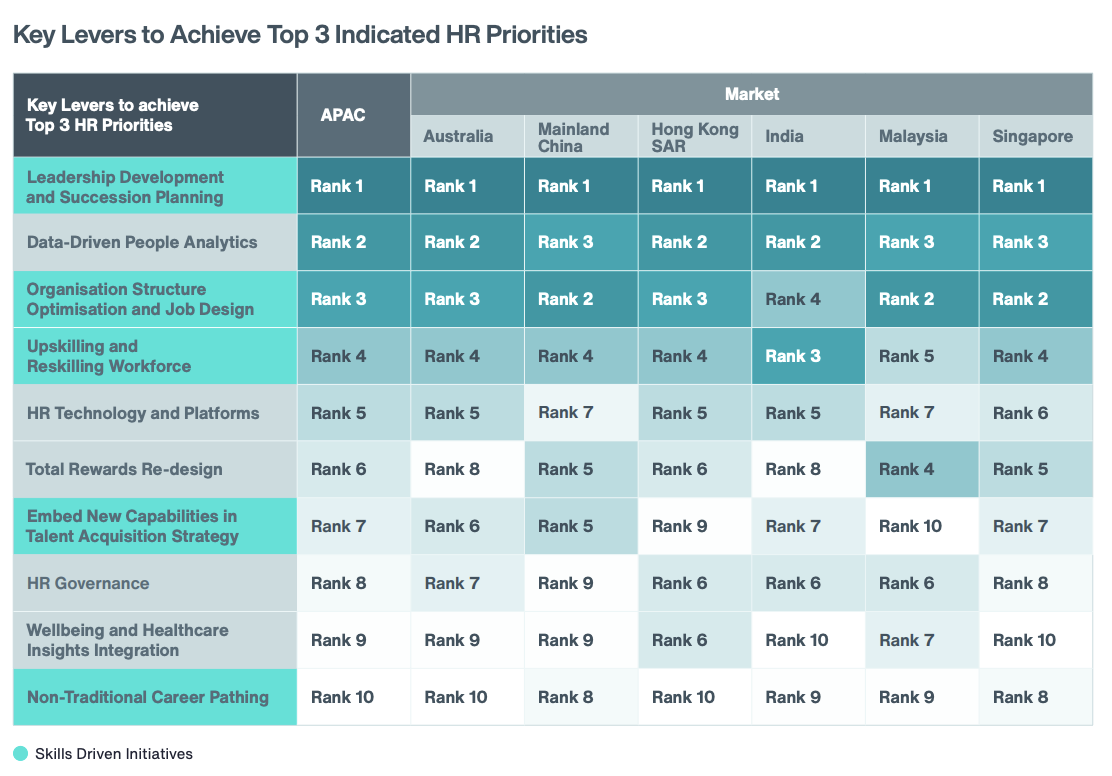
Schemes focus on leadership development, upskilling and reskilling

More than six in 10 organisations in the Asia-Pacific region are implementing skills-based initiatives to achieve their talent priorities over the next two to three years, according to a new report.
Findings from Aon's 2025 APAC Skills Impact Survey showed that the top talent priorities for organisations include attracting and retaining talent, as well as workforce agility and resilience.

To achieve this, 61% of organisations said they have implemented skills-based initiatives, with their top focus on leadership development and succession planning.
"This reflects the evolving talent priorities, as organisations focus on strengthening their leadership capabilities," the report read.
Another skills-driven initiative implemented is organisational structure optimisation and job design, and then upskilling and reskilling the workforce.

According to the report, the focus on these areas comes as organisations become increasingly aware that their current organisational capabilities, job setups, as well as people's skills will fall short in the future.
"Consequently, they are committing to defining future job roles and reinventing their job architecture in line with upcoming expectations," the report read. "As organisations navigate the choice between acquiring or developing skills, a long-term economic perspective is driving investment in upskilling and reskilling initiatives, ensuring the right talent is aligned with the right jobs."
The findings come as 90% of APAC organisations consider skills-related schemes to be highly important, with another 48% saying skills are critical in staying competitive, as well as driving business growth and talent success.
Despite this awareness, only 68% of organisations said they have a skills framework, which the report said is essential for skills-based talent management programmes.
"It enables organisations to clearly outline expectations for different jobs and job families, assess employee skills accurately, and design targeted initiatives for recruitment, development, and mobility," the report read.
Other barriers, such as limited budgets and resources, also hold back organisations from pushing their skills agenda, according to the report.
It added that measuring programme effectiveness is also a challenge that raises hesitation in implementing new skills initiatives.
Securing employee engagement and participation, as well as finding adequate time for employee training, are also considered obstacles in skills-based initiatives.
"To overcome these barriers, organisations must take small steps by starting with pilot programmes, using objective assessments and clear KPIs, engaging business stakeholders, and aligning skills frameworks with job architecture and external benchmarks," said Maggie You, head of people advisory for APAC at Aon, in a statement.